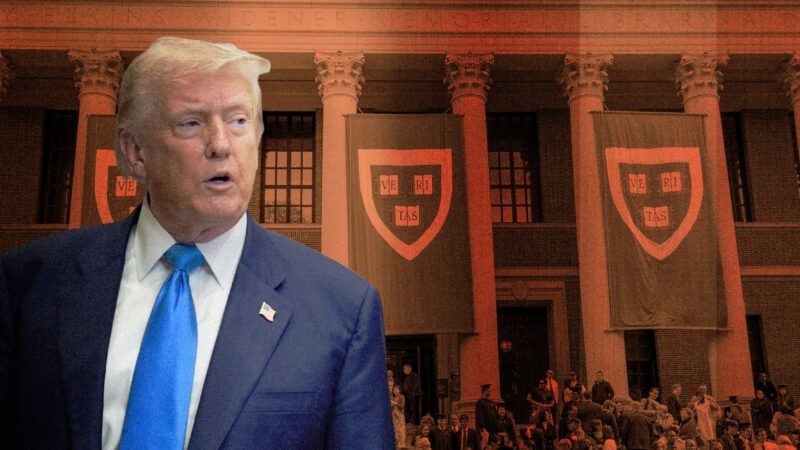Harvard Is Wise To Not Consider $500 Million Settlement With Trump
The university's president has maintained that Harvard will not risk losing its academic freedom, and it may delay any settlement negotiations until after a final court ruling.

Last week, The New York Times reported that Harvard University was open to a $500 million settlement with the Trump administration to put an end to an ongoing feud over allegations of antisemitism on campus. But Harvard faculty familiar with the matter have refuted the claim—one believed to have been leaked by White House officials—and told The Harvard Crimson that the university's president, Alan Garber, is seriously considering a court resolution rather than striking a deal.
The news of a possible Harvard settlement came just five days after news broke of Columbia University's $200 million settlement with the Trump administration. As part of the announcement of Columbia's settlement, Education Secretary Linda McMahon said the deal would serve as a "roadmap for elite universities," insinuating that ongoing negotiations—such as with Harvard—could meet a similar fate.
The feud between Harvard and the Trump administration was sparked in April after Harvard refused to comply with a list of sweeping demands to change governance, discipline, hiring, and admissions policies in the name of combating antisemitism on campus. For its defiance, President Donald Trump retaliated by freezing $2.6 billion in federal research grants to the university. Harvard filed suit, arguing that the funding freeze violated constitutional free speech protections. Since then, the Trump administration has deployed different tactics—including attempting to revoke the university's ability to enroll international students, investigating and subpoenaing information on its international students, and attacking its accreditation for violating Title VI of the Civil Rights Act—to escalate the standoff and move the school closer to striking a deal.
Trump has publicly stated that he believes Harvard will come to a deal with his administration. According to the Times, sources said that "Trump has privately demanded that Harvard pay far more than Columbia" and that he "told aides that he will not green-light a deal unless the…university agrees to spend many millions of dollars." However, while the university and its over $53 billion endowment may be able to afford a $500 million settlement, Garber reportedly told faculty that academic freedom is a nonnegotiable. Appointing an independent monitor to oversee policy changes—like what was agreed to in the Columbia settlement—could also be a red line for Harvard officials. Garber has maintained that Harvard will not risk losing its academic freedom, and with its early court wins, the university may delay any settlement negotiations until after a final court ruling, according to the Crimson.
However, Trump has already vowed to appeal any court opinion that rules against his administration. Even if Harvard wins in court, the university will still have to contend with the fallout and any ongoing tension between it and the administration that could potentially impact the university's bottom line—like the recent university endowment tax hike from 1.4 percent to 8 percent or following through on threats to revoke Harvard's cost-saving tax-exempt status.
Columbia and Harvard have taken disparate approaches to dealing with Trump's attacks: While Columbia signaled early a willingness to negotiate and make accommodations for the president's antisemitism allegations, Harvard has taken a hard-line approach against government encroachment. Rebuffing the Trump administration's settlement attempts is yet another differentiator between the two and will help inform other institutions that may soon come under fire—such as UCLA, which recently had $200 million in federal research funding frozen by the administration over alleged antisemitism violations.
Harvard officials are right to suspect that complying with Trump's demands will bring a higher level of oversight and compromise academic freedom. But to protect itself long term and mitigate against intrusive government action, Harvard—and other universities—must eschew federal funding altogether.


Show Comments (79)